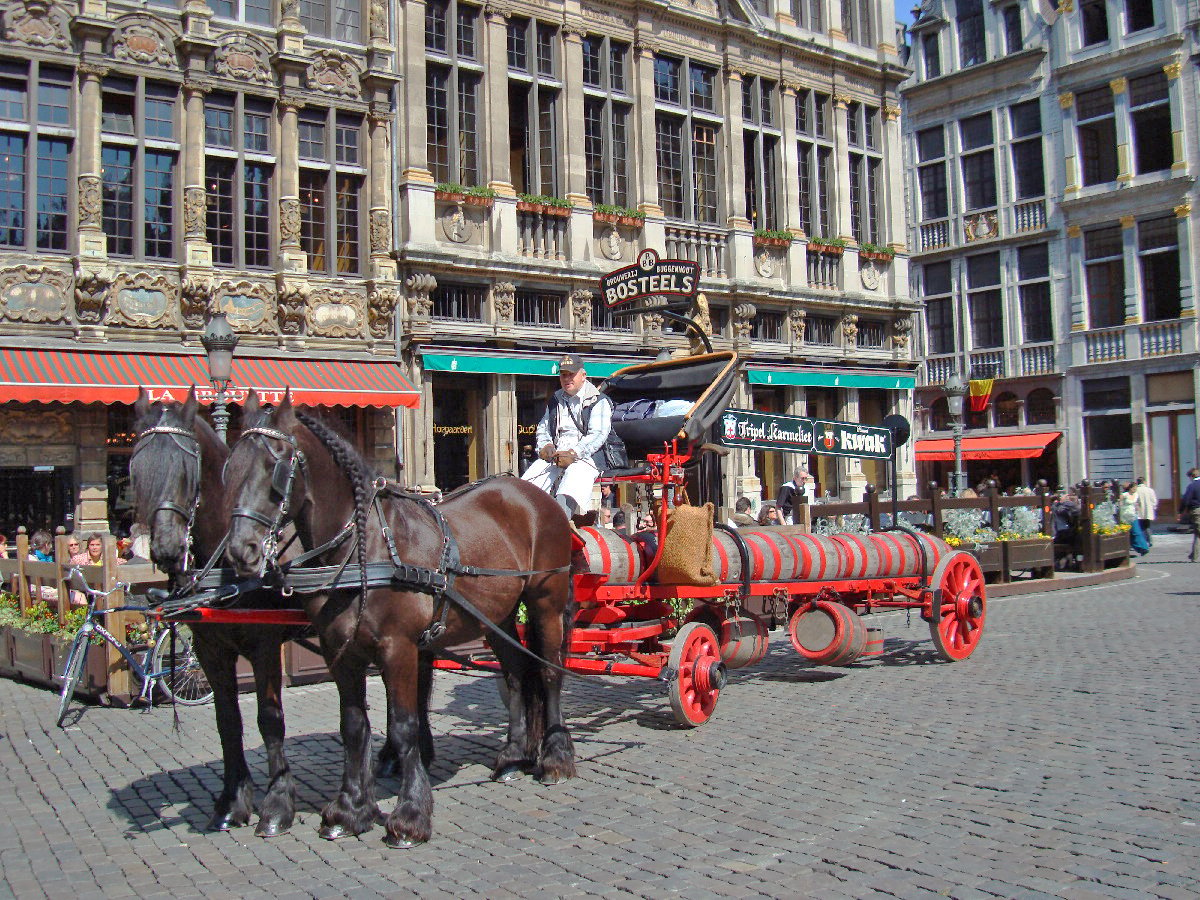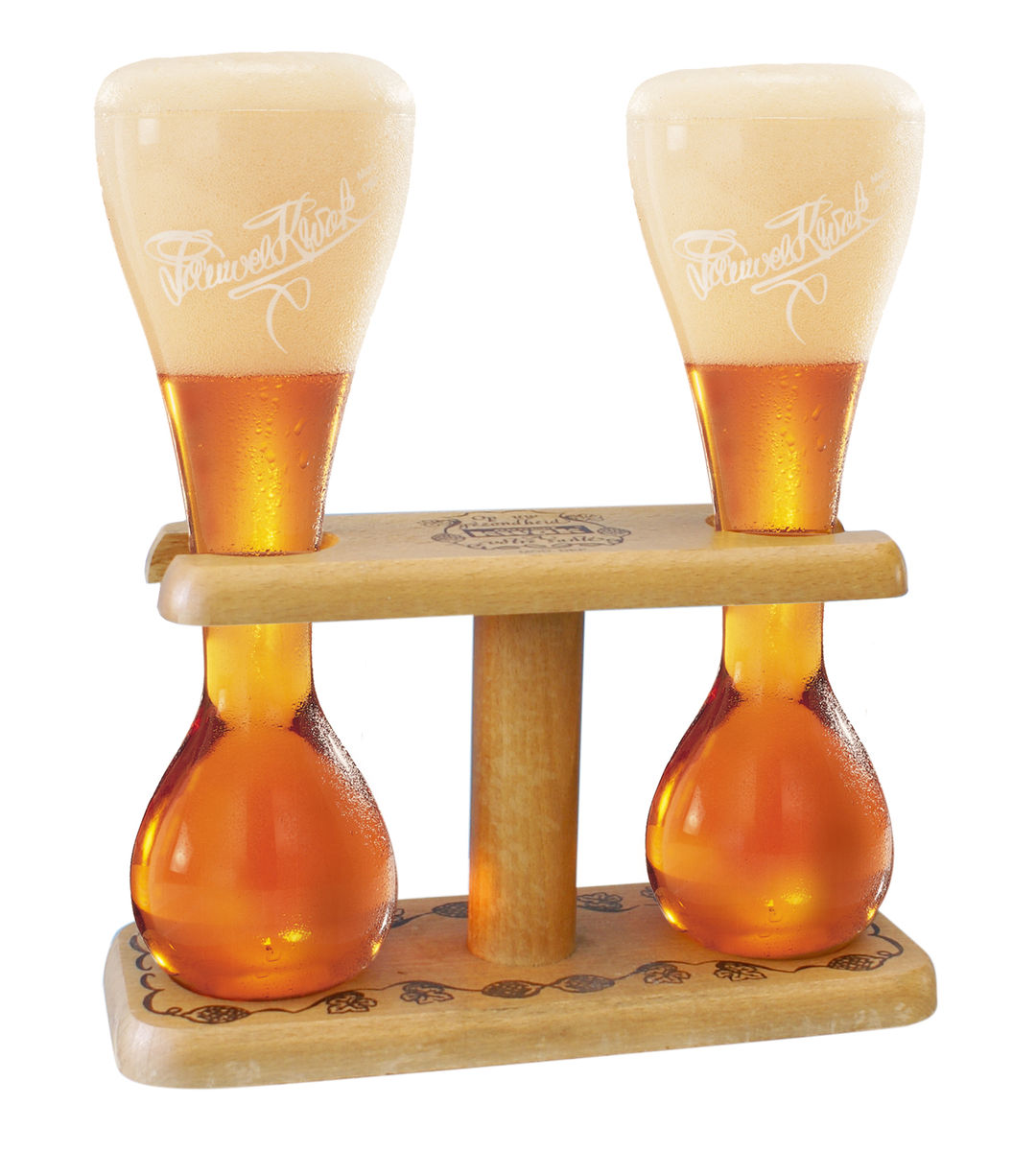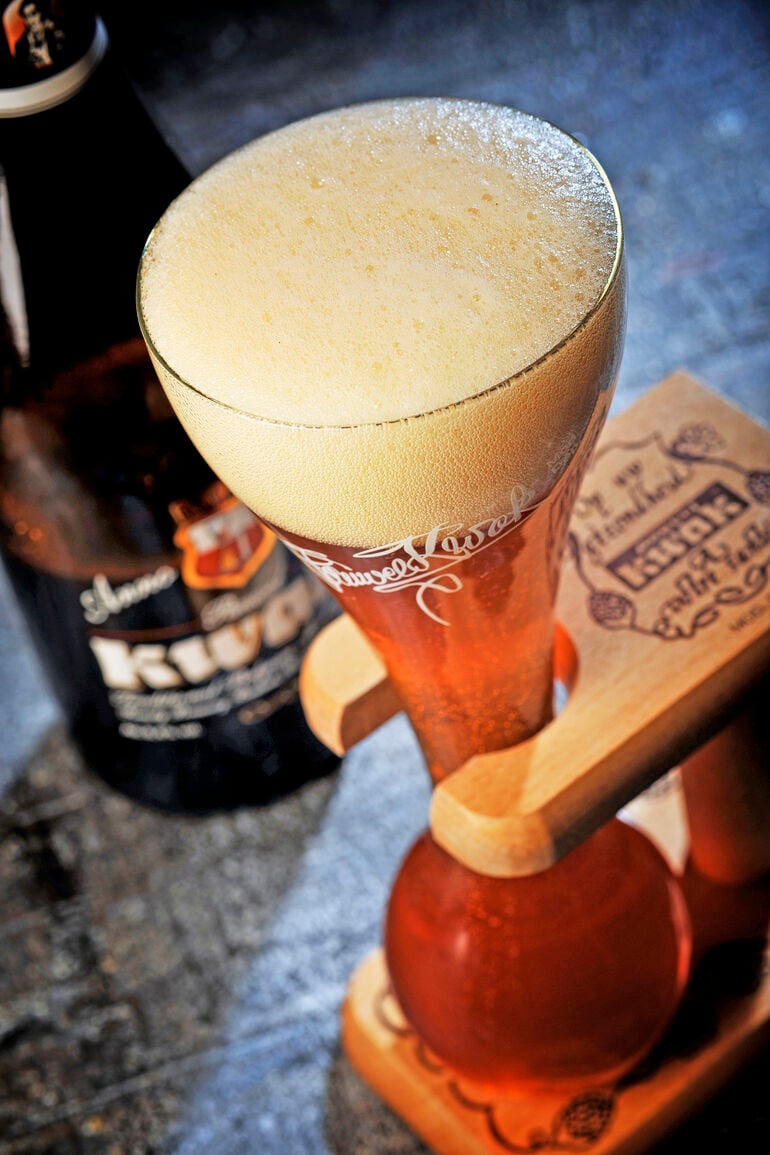Start 14-Day Trial Subscription
*No credit card required

The Prestige of Kwak
Pauwel Kwak, together with DeuS Brut Des Flandres and Tripel Karmeliet, is one of Bosteels Brewery's three brands with worldwide popularity. The prestige of Kwak as a brand today can be traced back to its fascinating origins as well as its singularly stylish glassware. Pauwel Kwak (the beer) is named for Pauwel Kwak (the man), who brewed his own beer for passing coachmen, which was drunk from the now-iconic koetsiersglas -- a bulbous vessel cradled in a wooden handle. To learn how this unique beer came about, we'll take you back to the very beginning of the story.
Imagine this: In a past life, you were an 18th century Flemish coachman. You piloted your one-to-four horsepower vehicle throughout the Denderland, named for the adjacent Dender river, which flows into the larger river Scheldt. You spend your days transporting mail and passengers, navigating routes that traverse through the forests of East Flanders, passing trees of beechwood, crossing over stone bridges and occasionally putting a scare into an unaware squirrel that might be securing an acorn cache in the roadway.
The path of the sun confirms that the day’s end is nigh; just a few more stops. Among them is the De Hoorn Inn, a “coaching inn” on the road between Mechelen and Gent. Here mail coaches and passengers could stop for the night or for a quick meal before hitting the road again.
The De Hoorn Inn is run by none other than Pauwel Kwak, who also brews his own beer. Patrons know they can count on Pauwel to brew his beers dark and heavy, and, as such, the inn is quite popular.
Unfortunately for you, the coach driver, you are legally obligated not to partake in any thirst-quenching activities. Recently established Napoleonic Code forbids coachmen from abandoning their posts to drink beer with their passengers, and from what you have heard, this little man with a big empire is not to be trifled with. So week after week you sit, parched and sober, hearing the sounds of clinking glasses and Flemish songs of merriment twinkling through the windows of the De Hoorn inn.
But fear not, because Pauwel Kwak is a benevolent man who will stop at nothing to bring his beer to anyone who desires it.
The solution? Kwak creates what may be the most iconic beer glass of all time.

Pauwel Kwak (the beer) is named for Pauwel Kwak (the man), who brewed his own beer for lucky Flemish coachmen in the 18th century that were able to stop and sample his wares.
Modern Kwak
The Kwak we know today is a recipe formulated in the 1980s by Brouwerij Bosteels in nearby Buggenhout. The brewery is known for its legendary three-beer lineup, which also includes Tripel Karmeliet and DeuS Brut des Flandres.
Pauwel Kwak is a top-fermented, filtered and pasteurized ale that clocks in at a surprising and deceptively strong 8.4 percent ABV. Like its Bosteels brethren, its ingredients are simple – barley malts, wheat, hops, white candy sugar. Bosteels’ characteristic mineral water is drawn from a depth of over 100 meters, and boasts a soft, low saline content, one of this beer’s many distinct attributes.
 Kwak fermentation takes place in “cylindroconical tanks at a temperature of between 73-81°F,” according to Bosteels, over the course of five to six days. Each batch is good for about 100,000 bottles. Once fermentation is complete, the beer undergoes a month-long maturation process at the lowest possible temperature, around 27°F. The beer is then filtered before packaging, beginning its journey to a carriage near you.
Kwak fermentation takes place in “cylindroconical tanks at a temperature of between 73-81°F,” according to Bosteels, over the course of five to six days. Each batch is good for about 100,000 bottles. Once fermentation is complete, the beer undergoes a month-long maturation process at the lowest possible temperature, around 27°F. The beer is then filtered before packaging, beginning its journey to a carriage near you.
The first thing you will likely notice about the beer itself is its striking ruby-amber color. Your gaze will then travel upward to the thick, cumulous head atop the beer, which requires its own special pour – beginning gently along the tilted side of the glass until the bulb is full, and gradually transitioning to a more aggressive, vertical angle during the last few fingers of the pour. The brewers recommend a serving temperature of 42°F to 44°F.
Described as a Belgian Strong Pale Ale, sweet aromatic notes are prominent on the nose, ranging from caramel malt to brown and demerara sugar, and dried fruits such as apricot and prune.
The aromas don’t lie. Upon first sip you will be greeted with an explosion of flavor attributes, including a continuation of dried fruit and caramel, which mingle with licorice, playful banana and bubblegum esters, zesty orange and apple, cookie dough and a hint of spicy Belgian yeast before finishing sweet and warming.
Hopping stays in the background, acting to pull the constituent parts together with restrained bitterness and hints of fruit.
Kwak deftly dances the fine line of sweetness without being cloying, and features a full-bodied mouthfeel without becoming overly viscous, chewy or cakey. Its carbonation manages to contribute that notably crisp quality that can set a beer apart and allow for incredibly easy transition from glass to tummy.
Its overall impression is that of an easy-drinking yet powerful thirst quencher. Kwak’s delicate sweetness superbly masks its alcohol content and tempts you to keep coming back for more. I found myself taking gulps rather than sips, due to its refreshing nature, and delighting in the veritable playground it creates on the palate. Even without the glass, it is an invigorating experience and one all beer aficionados should seek out.




Comments
Pages